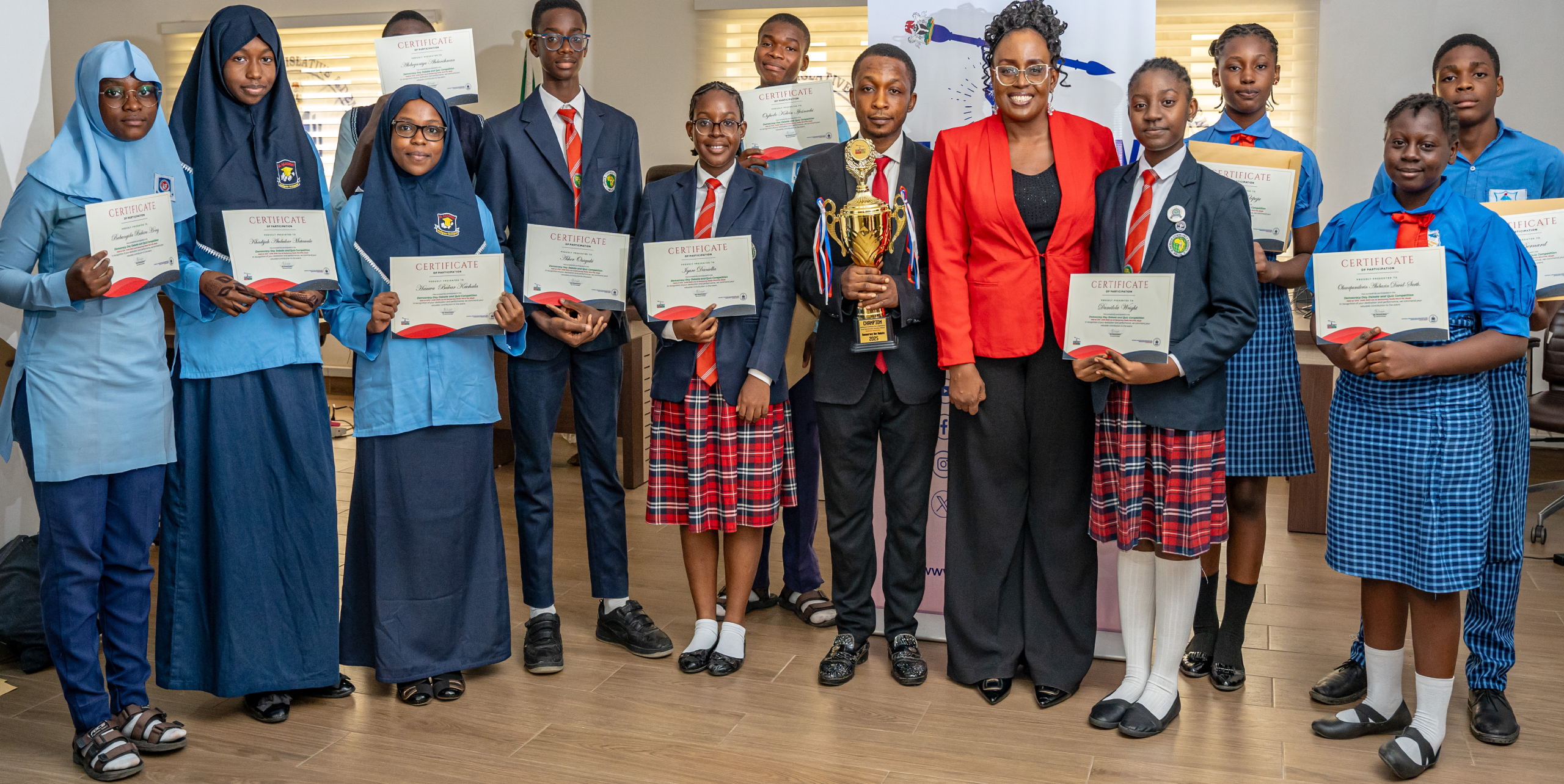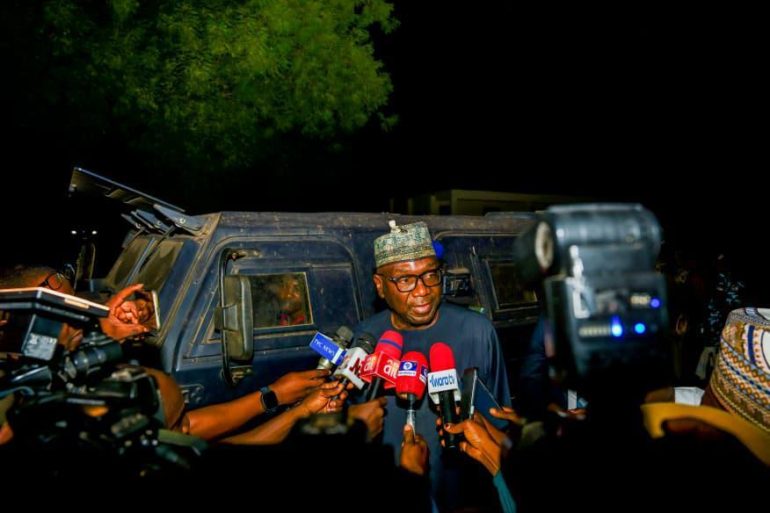Listeners:
Top listeners:
-
play_arrow
104.9FM Best rock music demo
-
play_arrow
Demo Radio Nr.1 For New Music And All The Hits!
-
play_arrow
Demo Radio Techno Top Music Radio
-
 play_arrow
play_arrow
Police Commissioner Launches Weapon and Riot Control Training for FCT Officers Democracy Radio
By: Julian Osamoto
As part of efforts to amplify youth voices in governance and civic participation, Democracy Radio hosted a vibrant inter-school debate in Abuja, bringing together students from four secondary schools to engage in timely conversations about the future of democracy in Nigeria.
Held before a live audience, the event created a dynamic platform for young Nigerians to explore complex democratic themes: from electronic voting to youth enfranchisement.
This is part of Democracy Radio’s ongoing mission to foster political engagement and civic awareness among the next generation.
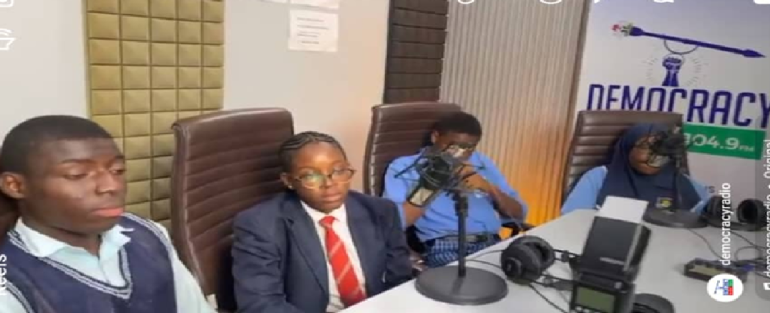
The debate unfolded in two tightly contested rounds, each centred on a topical issue driving Nigeria’s democratic discourse.
In the first round, African Community School, Asokoro, faced off with Government Secondary School, Garki, on the motion: “Is e-voting the future of democratic elections in Nigeria?”
Master Ogbodo Kelvin, speaking for Government Secondary School GSS Garki, championed the motion. “E-voting will help prevent rigging, reduce election violence like ballot box snatching, and make the process faster and more credible.”
But his opponent, Miss Oluwadamilola Wright, from African Community School, challenged that view, citing Nigeria’s digital divide.
“True transparency in electronic voting could be compromised, as the systems are often managed by appointees of political leaders”.
She further said “Many communities lack access to digital infrastructure. E-voting may exclude rural voters and leave too much room for technical failure.”
The second round featured Intelligent Quotient Academy against Treasure Homes International School, Lugbe, debating whether the voting age in Nigeria should be lowered to 16.
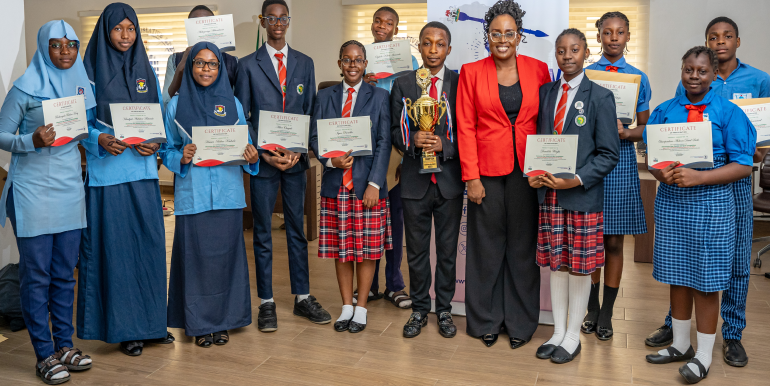
Oluwapamilerin Abobarin, an SS II student from Treasure Homes argued against the motion, questioning the readiness of teenagers to handle the responsibility. “At 16, most teenagers are still under pressure academically and emotionally. They’re not yet equipped to make such serious decisions.”
But Khadijat Matawale, from Intelligent Quotient Academy made a case for inclusion. “If 16-year-olds can work and pay taxes in some countries, why can’t they vote? They deserve a say in policies that affect their lives.”
She questioned why Nigeria couldn’t follow the example of countries like Australia, Cuba, and Brazil, where 16- and 17-year-olds are permitted to vote, suggesting that similar reforms could empower Nigerian youth in the democratic process.
Earlier, Democracy Radio’s General Manager, Uju Uwachukwu, said the programme was designed to inspire critical thinking and encourage active participation in democratic processes from a young age.
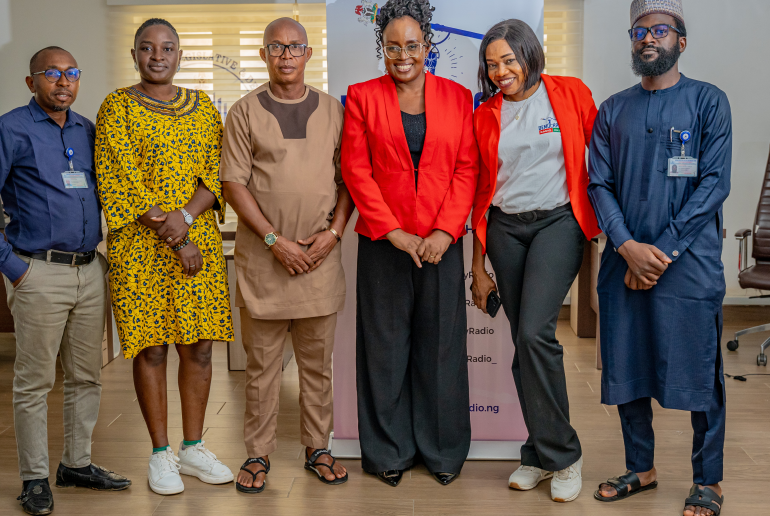
“We believe young people are key to sustaining democracy. This platform helps them find their voice and understand their civic responsibilities.”
The general manager assured that with the support from the mother organisation, NILDS, the debate would not be a one-off event but would be expanded to include university students as well.
The debate featured certificate presentation as African Community School emerged overall winner, earning accolades for their clarity, research, and argument delivery.
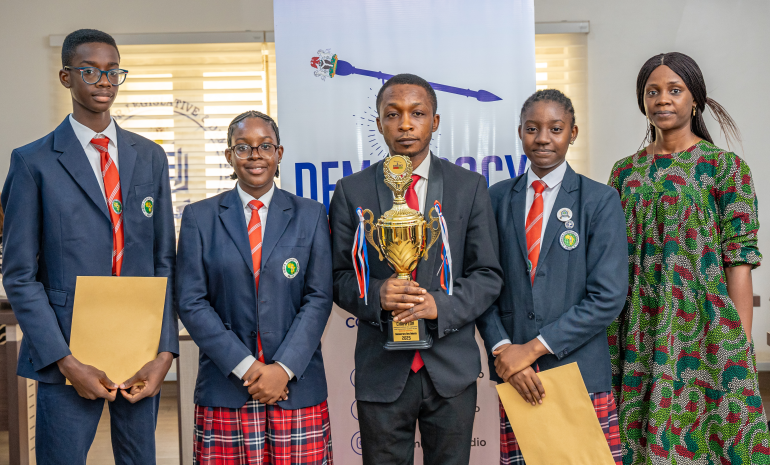
Written by: Julian Osamoto
#DemocracyRadio #Government Secondary School #Intelligent Quotient Academy #Treasure Homes International School Africa Community School Garki Uju Uwachukwu
Similar posts
Copyright Democracy Radio -2024

